The White House has called a last-minute meeting to discuss a private mission to the moon - set to launch in days - after the largest group of Native Americans in the United States asked the government to postpone the flight because they would be cremated would have people on board. remains destined for a moon burial.
If successful, the commercial mission launching Monday - called Peregrine Mission One - will mark the first time an American-made spacecraft has landed on the moon's surface since the end of the Apollo program in 1972. But Navajo President Buu Nygren Nation, said if the remains landed there, it would be an insult to many indigenous cultures, which revere the moon.
"The moon has a sacred place in Navajo cosmology," Nygren said in a statement Thursday. "The suggestion to transform it into a resting place for human remains is deeply disturbing and unacceptable to our people and many other tribal nations."
The private companies offering these lunar burial services, Celestis and Elysium Space, are just two of the many paying customers taking a ride to the moon on Pittsburgh-based Astrobotic Technology's Peregrine lunar lander. The unmanned spacecraft is expected to lift off on the maiden flight of United Launch Alliance's Vulcan Centaur rocket from the Cape Canaveral Space Force Station in Florida.
Celestis' cargo, called Tranquility Flight, includes 66 "commemorative capsules" containing "cremated remains and DNA."which will remain on the moon's surface "as a permanent tribute to the fearless souls who never stopped reaching for the stars," according to the company's website.
"We are aware of the concerns raised by Mr. Nygren, but do not believe they are substantive," Celestis CEO Charles Chafer told CNN.
"We reject the claim that our memorial spaceflight mission desecrates the moon," Chafer said. "Just as permanent memorials to the deceased are present everywhere on planet Earth and are not considered desecration, our memorial on the moon is treated with care and reverence; it is a permanent monument that does not deliberately eject escape pods onto the moon. It is a moving and fitting celebration for our participants - the exact opposite of desecration, it is a celebration."
The story continues
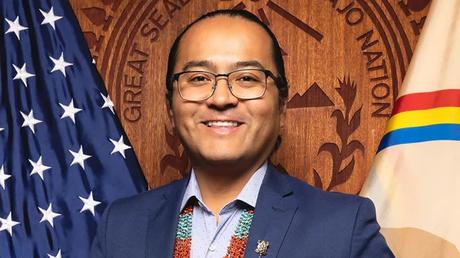
Elysium Space did not respond to CNN's request for comment, but the company's website describes its "Lunar Memorial" as providing "a symbolic portion of the remains on the moon's surface, helping create the ultimate commemoration."
"I'm disappointed that this conversation came up so late in the game," said John Thornton, CEO of Astrobotic Technology. "I would have liked to have had this conversation a long time ago. We announced the first such cargo manifest for our mission in 2015. A second one in 2020. We're really trying to do the right thing and I hope we can find a good path forward with Navajo Nation.
The beginning of the moon economy
This isn't the first time the Navajo Nation has raised concerns about burials on the moon. In a December letter to NASA Administrator Bill Nelson and Transportation Secretary Pete Buttigieg, Nygren referred to NASA's Lunar Prospector mission, which deliberately crashed a spacecraft on the moon in 1999 carrying the remains of former astronaut Eugene Shoemaker.
"At the time, Albert Hale, President of the Navajo Nation, expressed our objections to this action. In response, NASA issued a formal apology and promised consultation with the tribes before allowing further missions with human remains to the moon," Nygren said.
While NASA is the primary customer for this mission, it is still one of many customers paying to put technology and cargo on Astrobotic's lunar lander.
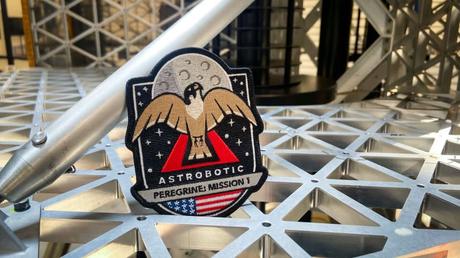
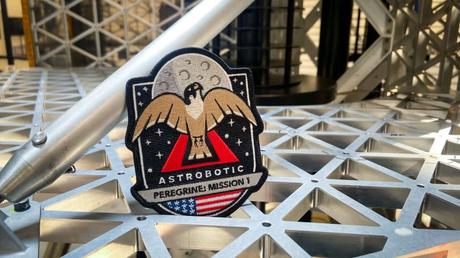
The space agency paid Astrobotic $108 million to develop the lander and deliver science experiments to the moon, Sandra Connelly, deputy assistant administrator for NASA's Science Mission Directorate, said in a news conference on Friday. The space agency also developed the Artemis Accords, a document that outlines what should and should not be allowed on the moon and was signed by the US and 32 of its allies.
"We recognize that some non-NASA commercial payloads may be of concern to some communities, and those communities may not understand that these missions are commercial. They are not US government missions," said Dr. Joel Kearns, NASA Deputy Assistant Administrator for Exploration.
Peregrine Mission One marks the start of NASA's Commercial Lunar Payload Services (CLPS) initiative, which will allow the US space agency to outsource the launch and transport of its lunar payload to private companies. The mission is at the dawn of the lunar economy and the rules are still evolving.
"American companies bringing equipment, cargo and payloads to the moon are a whole new industry - an emerging industry - where everyone is learning," Kearns said. "We take the concerns of the Navajo Nation very, very seriously.
Nygren, who represents the approximately 430,000enrolled members of the Navajo Nation, say the tribe is "not opposed to scientific progress or space exploration" but "remains deeply concerned about the lack of oversight and regulation of non-NASA commercial payloads, especially when such payloads involve human include remains.
Who controls the moon?
The Federal Aviation Administration's Office of Commercial Space Transportation is responsible for licensing all private space launches in the US. But by law, the agency only has oversight of matters relating to "the public health and safety, the security of property, and the national security and foreign policy interests of the United States."
"The Federal Aviation Administration's role is legally limited to ensuring that spaceflight does not pose a threat to the safety or national security of the United States," a Department of Transportation spokesperson told CNN.
But the executive director of the Navajo Nation's Washington Office, Justin Ahasteen, calls that argument "absurd."
"They're basically suggesting that you can send anything into space. Does this mean people can send drugs? Does this mean people can ship hazardous material? The lack of oversight, I think, is really concerning for the nation," Ahasteen told CNN.
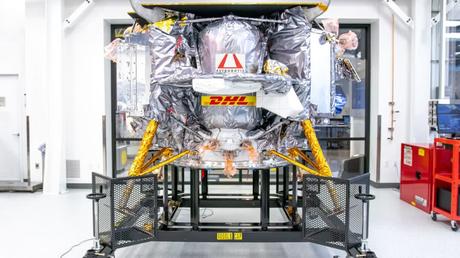
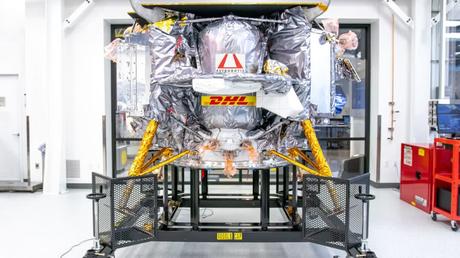
The debate raises new questions at the start of a race to colonize the moon about who controls Earth's only natural satellite.
"No one, and no religion, owns the moon," the CEO of Celestis told CNN. "If we take into account the beliefs of the world's many religions, it is very likely that missions will never be approved. Simply put, we do not let religious beliefs dictate humanity's space efforts and never have. There is and should be no religious test."
Ahasteen states that it is not the Navajo Nation's intention to claim the moon.
'We say: be respectful. We turn the moon into a graveyard and we turn it into a mess," Ahasteen said. "At what point are we going to stop and say we need to start protecting the moon like we do the Grand Canyon?"
Friday's meeting, convened by the White House, will include representatives from NASA, the FAA, the U.S. Department of Transportation and the Department of Commerce. But Navajo Nation officials have little hope of stopping Monday's launch.
"Based on what we're seeing, and NASA already has their pre-launch briefing, it doesn't appear that they plan to stop the launch or remove the remains," Ahasteen said.
For more CNN news and newsletters, create an account at CNN.com
